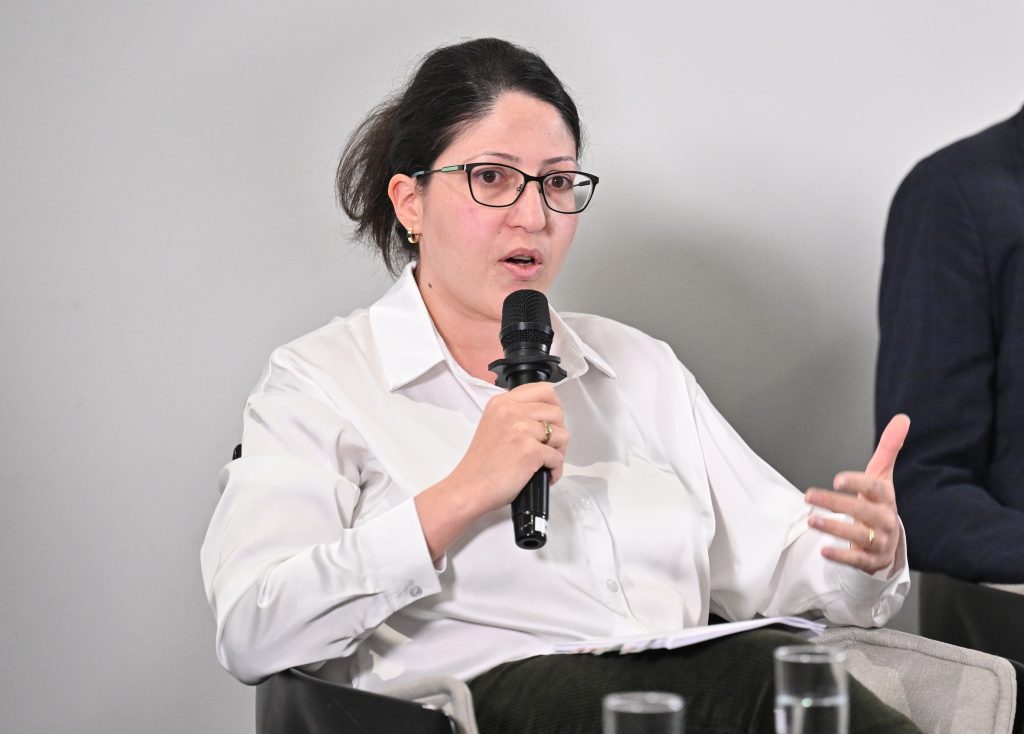By Lia Avagyan
A book dedicated to the 2020 Karabakh War, titled “Broken Shield: A Multi-layered Analysis of the 44-Day Artsakh War”, has been released by Yerevan’s Newmag publishing house. The book is a collection of articles by 17 Armenian and foreign authors who address the Karabakh conflict, the 2020 war, and related topics, edited by Vicken Cheterian.
One of the book’s articles, authored by Naira Sahakyan, Assistant Professor at the American University of Armenia, titled “Armenian Official Discourse over the Mountainous Karabakh Conflict: 1988-2020,” analyzes the changing dynamics in the official discourse of Armenian leaders regarding Karabakh. During this period, Armenian official rhetoric went through several phases, reflecting changes in political, social, and geopolitical realities.

Formation of the Narrative (1988-1991)
In the initial period of the Karabakh Movement (1988-1991), the central idea in Armenian discourse was miatsum (unification), with the goal of uniting Nagorno-Karabakh with Soviet Armenia. During this period, the speeches of Levon Ter-Petrosian, a member of the Karabakh Committee and later Chairman of the Supreme Council, emphasized the elimination of historical injustices and the necessity of removing NKAO from Azerbaijan’s authority.
Incidents of violence, particularly the pogroms of Armenians in Sumgait, Kirovabad, and Baku, significantly impacted Armenian nationalism and political discourse around Karabakh. The discourse increasingly emphasized this element of an existential threat and the need to restore historical justice.
Self-Determination Discourse (1991-1997)
After the collapse of the USSR, President Ter-Petrosian’s discourse shifted from unification to the idea of self-determination. The conflict was now presented as a struggle for the right of self-determination for the people of Nagorno-Karabakh.
In 1993, Ter-Petrosian began to emphasize the need for compromises. He was ready to return some occupied territories while maintaining the Lachin corridor in exchange for security guarantees and a special status for Nagorno-Karabakh.
In 1997, Ter-Petrosian’s agreement to the “package” and “step-by-step” solutions proposed by the OSCE Minsk Group created disagreements within the government, which ultimately led to his resignation in 1998.
Status Quo Maintenance Discourse (1998-2018)
During the presidencies of Robert Kocharyan and Serzh Sargsyan (1998-2018), the discourse focused on Karabakh’s independence. Both insisted that Nagorno-Karabakh had never been part of the independent Azerbaijan and that it had exercised its right to self-determination just as Azerbaijan had.
Kocharyan emphasized that Azerbaijan had committed aggression against the Armenians of Nagorno-Karabakh. During his administration, Armenia signed several strategic agreements with Russia, increasing Armenia’s dependence on Russia for the sake of maintaining the status quo.
Sargsyan’s discourse also centered on the ideas of an imposed war and existential struggle. He repeatedly emphasized that the Armenians of Nagorno-Karabakh were simply defending their right to exist against Azerbaijani aggression.
After the Four-Day War in 2016, Sargsyan’s speeches became contradictory. To Armenian society, he assured that there would be no unilateral concessions and that “Karabakh will never be part of Azerbaijan,” while to international audiences, he spoke about “reasonable compromises.”
During this period, there was also a gradual sacralization of the Karabakh issue, as it came to be presented as a sacred problem on which Armenia could not compromise.
Revolutionary Nationalism (2018-2020)
In the initial period of Nikol Pashinyan’s premiership (2018-2020), there was a return to more active nationalist rhetoric. At first, he insisted that Nagorno-Karabakh should participate in negotiations, as he could not represent the people of Artsakh.
Inspired by the victory of the 2018 Velvet Revolution, Pashinyan adopted a strategy that connected the revolutionary victory with the spirit of Armenian victory in the First Karabakh War.
In 2019, Pashinyan’s declaration “Artsakh is Armenia, and that is all” during a rally in Stepanakert marked the culmination of the rhetoric. This nationalist rhetoric, although directed at the domestic audience, significantly affected the negotiation dynamics.
During the 2020 war, the component of genocide against Armenians appeared in Pashinyan’s discourse. The war was presented as a continuation of the genocide organized by the Ottoman Empire in 1915, now being carried out by Turkic nations a century later.
New Sovereignty Discourse (Post-2020)
After the defeat in 2020, Pashinyan’s discourse radically changed. Instead of the Nagorno-Karabakh issue, the emphasis was placed on the sovereignty of Armenia. An example of this new discourse is his September 2023 message, where he emphasizes that “the citizen of the Republic of Armenia will win in this struggle for independence, sovereignty, democracy, happiness and freedom.”
Instrumentalization of the Conflict
The article reveals how the Karabakh conflict has been instrumentalized in the domestic political arena. Armenian leaders have used the conflict against political rivals, hindering constructive dialogue and sustainable solution paths.
The sacralization of the conflict, especially in the 2010s, reflected the political deadlock, when trust between the parties was almost non-existent. In this scenario, the discourse of sacralization served to justify a potential military confrontation rather than seeking alternative solutions.
After the defeat in the 2020 war, the discourse changed, focusing on the sovereignty of the Republic of Armenia itself, while the Karabakh issue, which had been the core of Armenian state ideology for decades, was gradually pushed to the background.
Read the article in Armenian: Հայաստանի պաշտոնական խոսույթի փոփոխությունները Արցախի հարցում 1988-2020-ին
The post Armenian Official Discourse on Karabakh: From 1988 to 2020 appeared first on CIVILNET.